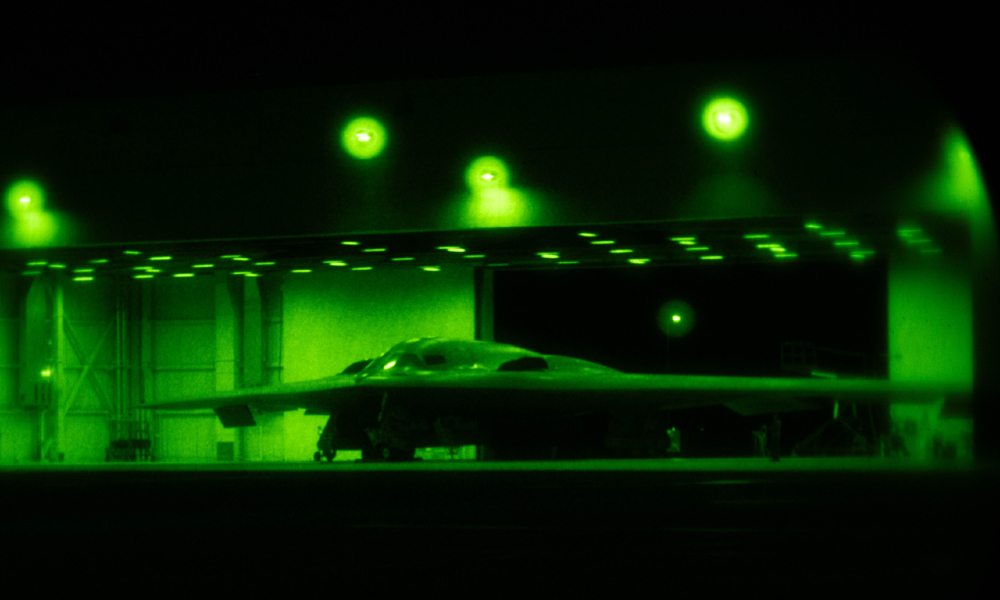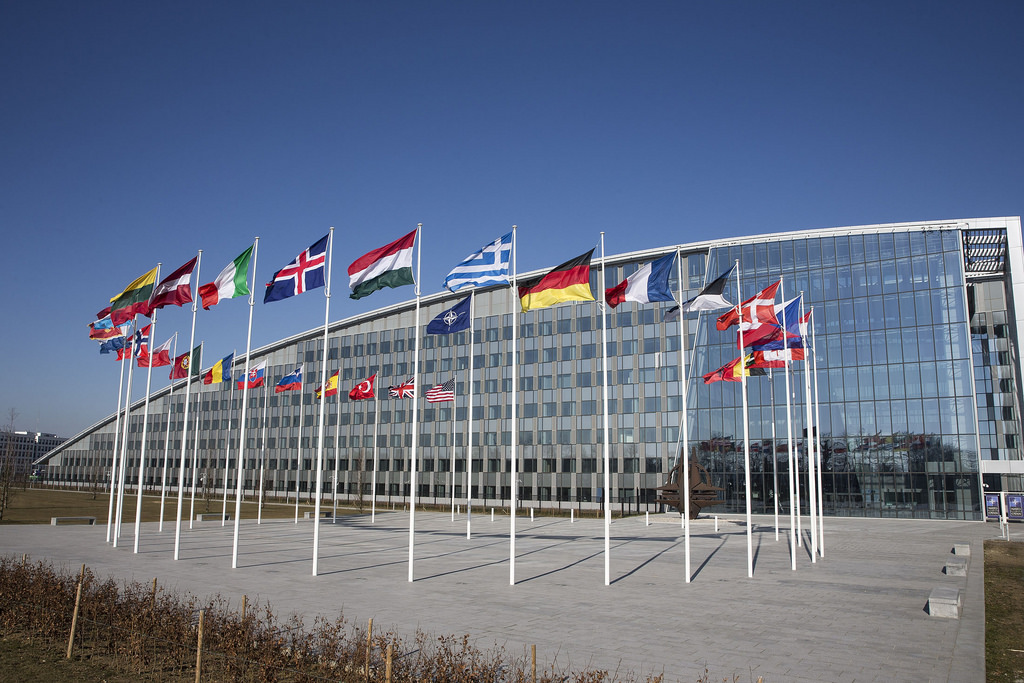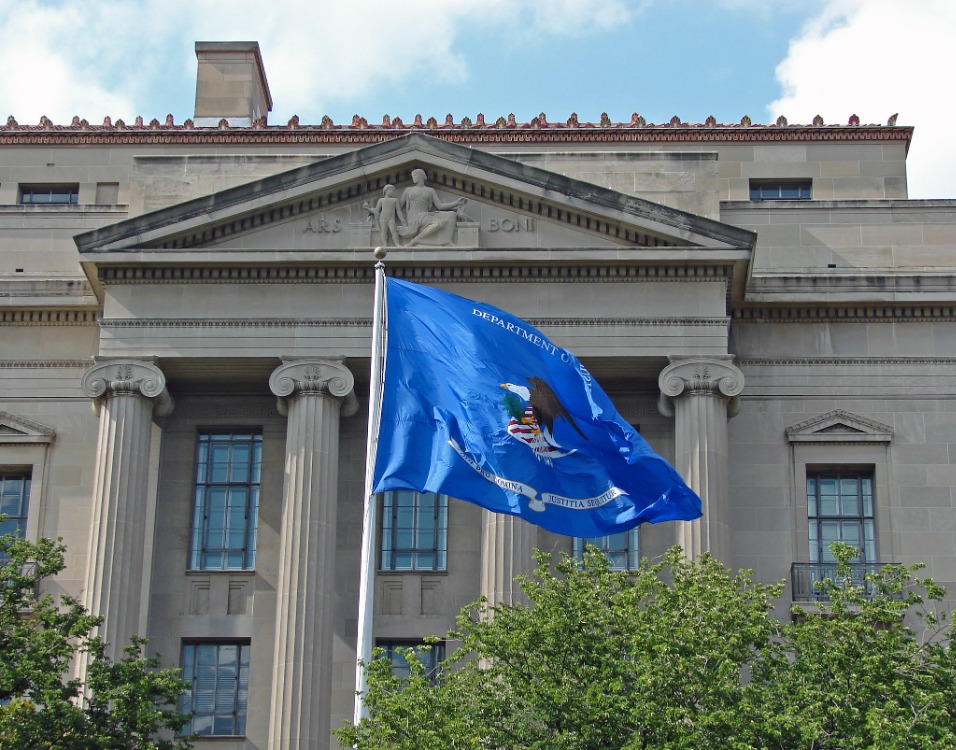What the Iran Strikes Mean for Nuclear Diplomacy

Editor’s Note: Critics condemned the U.S. and Israeli strikes on Iran’s nuclear facilities, arguing that negotiations, not force, are the best way to ensure nonproliferation. My Center for Strategic and International Studies colleague Doreen Horschig argues, however, that the blustering of critics like China and Russia aside, the strikes did not set back nonproliferation diplomacy and may have enhanced it.
Daniel Byman
***
On June 22, the United States launched Operation Midnight Hammer, striking Iran’s nuclear facilities with fourteen 30,000-pound bunker buster bombs and several Tomahawk cruise missiles. The attacks immediately sparked debate among experts over whether military force would erode confidence in the global nonproliferation regime that constrains the spread of nuclear weapons. For decades, the international community relied on diplomacy, sanctions, and rigorous safeguards—not airstrikes—to prevent the spread of nuclear weapons. Using force to block a state’s nuclear ambitions fell outside the recognized toolkit of nonproliferation measures.
Critics seized on the strikes as evidence of overreach by a nuclear weapons state. Russia condemned the operation as a “blatant violation of international law, the UN Charter, and relevant Security Council resolutions.” Nuclear experts warned that such actions could legitimize the use of force as a nonproliferation tool and undermine decades of painstaking efforts to build trust in the rules-based nuclear order and strengthen the Treaty on the Non-Proliferation of Nuclear Weapons (NPT), which provides a framework for international cooperation.
Yet the immediate impact on the nonproliferation regime may have been smaller than feared—and in some respects, the strikes may have even reinforced nonproliferation. Despite concerns, many countries accepted the U.S. strikes given their limited scope and the fact they were carried out by a nation long recognized for its leadership in promoting global nonproliferation. The operation set back Iran’s nuclear program and appeared to stabilize the conflict, as reflected in the Iran-Israel ceasefire reached shortly after. More broadly, it may have sent a deterrent signal to other states considering nuclear proliferation. At the same time, diplomacy remains central to constraining nuclear proliferation, as demonstrated by the continued diplomatic efforts to limit Iran’s nuclear ambitions.
Military Strikes and the Nonproliferation Regime
Historically, both military and nonmilitary actions have been used to prevent states from proliferating, but the recent U.S. airstrikes against Iran are an outlier because they are the first strikes on operating nuclear facilities. For decades, the international community has favored diplomatic and economic measures to curb nuclear ambitions, most notably relying on the NPT and efforts including nuclear-weapon-free zones and multilateral export control regimes. The United States also uses extended nuclear deterrence that offers allies a security guarantee to discourage them from developing their own nuclear weapons. These nonmilitary tools represent key elements of the established toolkit of the global nonproliferation regime.
Military action, while not unheard of, has been the exception—and has been pursued mostly by Israel. Israel’s 1981 Operation Opera, which destroyed an Iraqi nuclear reactor under construction at Osirak, and its 2007 Operation Orchard against a Syrian reactor are the most frequently cited examples of preventive strikes. The United States has also claimed military action in the name of nonproliferation, most notably in the 2003 invasion of Iraq. However, that case rested on contested evidence and provoked significant international backlash, raising questions about the legitimacy of using force for nonproliferation ends. In addition to strikes, Israel has conducted other military actions, including sabotage, cyberattacks, and assassinations, to hinder Iranian proliferation efforts. However, these actions did not set a precedent for a military option as a recognized part of the nonproliferation toolkit, which continues to be centered on diplomatic engagement, sanctions, and international oversight. Because Israel is not a party to the NPT, its strikes fall outside the treaty’s formal framework and legitimacy, though they may still influence regional proliferation dynamics and perceptions of military options.
Worries About the Nonproliferation Regime
Much of the concern over the U.S. strikes stems from the stage of Iran’s nuclear weapons program at the time of the operation. In March, U.S. intelligence agencies assessed that Iran had not yet decided to build a bomb, a judgment that stood in stark contrast to Israel’s assessment of the threat. Israeli officials argued that the program had already reached a critical threshold, making military action urgent. U.S. assessments, by contrast, emphasized that while Iran already possessed enough enriched uranium to pursue several weapons if processed further, moving from material to an actual nuclear weapon would still require additional steps that could take months, if not longer. This divergence fueled confusion in the international community over how close Iran really stood to weaponization.
Even if the gap amounted to only a few months, the timeline felt dangerously imminent to many observers. For example, the E3 (France, Germany, and the United Kingdom) stated jointly in December 2024 that they were “extremely concerned” about the expansion of the Iranian nuclear program. Rafael Grossi, chief of the U.N. nuclear watchdog International Atomic Energy Agency (IAEA), described Iran’s acceleration as “dramatic” in December 2024 and reiterated his concerns in May. While the E3 and the IAEA acknowledged that Iran posed a genuine risk that could intensify if unchecked, Israel concluded that the threat demanded immediate action.
Washington attacked after Israel’s initial strike, amid mounting concern that Iran might move closer to weaponization because of the strikes by Israeli forces. But by acting without clear evidence of such a decision, the United States risked eroding nonproliferation norms and fueling the view among non-nuclear states that the regime serves the interests of nuclear powers and their allies. Critics warned that military action against a state in compliance with the NPT could undermine the treaty by creating a dangerous precedent: Other nuclear-armed states might feel entitled to enforce nonproliferation unilaterally, while non-nuclear states might perceive the regime as biased toward the interests of powerful nuclear nations and their allies. This could weaken trust in the NPT, discourage cooperation with safeguards, and make states more likely to pursue their own nuclear options out of fear that the treaty would not protect them.
A Complex International Response
The international community’s response to the U.S. strikes against Iran’s nuclear facilities ranged widely, from muted support to outright condemnation. Russia and China quickly condemned the attacks, with Russia arguing they dealt a “substantial blow” to the global nonproliferation regime and undermined the credibility of the NPT and the IAEA. China echoed this sentiment, stating the strikes “seriously violate the purposes and principles of the U.N. Charter and international law.” Other nations—including Pakistan, Oman, Iraq, Venezuela, Cuba, and North Korea—also denounced the actions, primarily citing violations of state sovereignty and international law.
U.S. allies and partners responded with a mix of support and cautious distancing. British Prime Minister Keir Starmer backed Washington’s decision, calling Iran’s nuclear program a “grave threat to international security.” Australian Foreign Minister Penny Wong went a step further, endorsing the strikes as a necessary action to prevent a nuclear Iran. Australia’s prime minister, Anthony Albanese, while not endorsing the strikes directly, focused on the need for diplomacy and for Iran to “abandon any nuclear weapons program.” France and Germany expressed concern about the military action but stopped short of sharp criticism, emphasizing their firm opposition to an Iranian nuclear weapon and highlighting the need for a diplomatic solution.
Other key nations, including Japan and India, neither endorsed nor condemned the attacks. Likewise, Saudi Arabia, the United Arab Emirates, Qatar, and Turkey expressed concerns but refrained from issuing formal condemnation. U.N. Secretary-General António Guterres stated he was “gravely alarmed” and called for deescalation but did not mention specific consequences for the United States. Many non-nuclear states, such as Vietnam, Thailand, and Mexico, raised concerns, but notably they did not name the United States directly. Brazil and Chile responded more swiftly, condemning the attacks as a “blatant transgression of the United Nations Charter and the norms of the International Atomic Energy Agency.” South Africa expressed concern over the U.S. entering the Israel-Iran war. However, none of the three took further action.
Crucially, what was left unsaid was as important as what was said. Few states, not even the ones that are traditionally strong enforcers of nonproliferation norms, such as Japan, Germany, or Mexico, connected the strikes to the future of the nonproliferation regime itself. This silence spoke volumes, suggesting that even those most invested in the system chose to avoid a direct confrontation over whether the U.S. military action might ultimately weaken the very norms they sought to uphold.
What Do the Strikes Mean for International Nonproliferation?
The U.S. attacks may have weakened the nonproliferation regime and its more traditional tools less than feared. Many countries accepted the strikes, likely because of several underlying conditions.
First, the strikes were limited in scope. The 18-hour operation marked the United States’s only offensive action against Iran, and it was tightly focused on Iran’s nuclear program. The strikes deliberately avoided collateral damage and did not extend beyond the specifically selected facilities, underscoring Washington’s intent to keep the operation narrow and contained.
Second, the attacker was a country long recognized for its leadership in nonproliferation. The United States combines strict export controls and international diplomacy to prevent the spread of weapons while also promoting safe, civilian nuclear energy through agreements, oversight, and technological support. Washington has played a central role in establishing and upholding the NPT, has consistently used extended deterrence to discourage allies from pursuing their own nuclear weapons, and has promoted global nonproliferation as a core objective of its foreign policy. These long-standing efforts lent credibility to U.S. claims that the strikes were aimed at curbing nuclear danger rather than pursuing broader political goals, such as regime change. Dorothy Shea, deputy U.S. representative to the United Nations, explained in a Security Council meeting that the “United States precision operation effectively fulfilled our narrow objective to degrade Iran’s capacity to produce a nuclear weapon.”
Third, Iran’s internal volatility and bumpy governance record amplified international concern about its nuclear ambitions. Ongoing domestic instability raises questions about the state’s capacity to manage sensitive technologies securely and to prevent the diversion of nuclear materials. These uncertainties deepened apprehensions that an Iranian nuclear capability could increase regional risks and undermine global nonproliferation norms.
Fourth, the strikes appeared to have a stabilizing effect on a highly volatile regional situation. Since June 24, two days after the strikes, neither Israel nor Iran has carried out additional military attacks on one another, suggesting that the operation helped to deescalate tensions between the two adversaries. The strikes also set back Iran’s nuclear program, though it remains uncertain how long this setback will last or how it will influence Tehran’s long-term nuclear ambitions. Still, the immediate reduction in hostilities and the temporary disruption of Iran’s capabilities point to a measure of short-term success.
Finally, and more broadly, the strikes may have sent a deterrent signal to states weighing the pursuit of nuclear weapons. Although such military action is atypical of traditional nonproliferation tools, it demonstrated U.S. and Israeli willingness to use force against an NPT member that appeared to be moving toward weaponization. This signal, while controversial, underscored the potential costs of violating the nonproliferation regime and may shape how other states—including countries like Saudi Arabia, South Korea, and others considering nuclear options—calculate the risks of future proliferation.
All Eyes on Tehran
Operation Midnight Hammer might have been tolerated by the nonproliferation community as a way to halt Iranian proliferation, at least temporarily. But the episode underscores the fragility of the regime: Even actions that momentarily stabilize a volatile situation can blur the boundaries of what is considered legitimate nonproliferation enforcement. Whether the strikes ultimately weaken or reinforce the regime will hinge less on the setback to Iran’s program than on how the international community interprets and responds to this departure from the established toolkit. In fact, the strikes may have even reinforced the NPT’s deterrent effect for some states by signaling that the international community takes potential violations seriously.
Looking ahead, much will depend on how Iran and the broader international community act. If Tehran were to withdraw from the NPT, accelerate enrichment, or move decisively toward weaponization in retaliation for the strikes, concerns about the regime’s erosion would intensify. After all, the Majlis, Iran’s national legislative body, approved a bill to suspend cooperation with the IAEA and has reportedly drafted a bill to withdraw from the NPT but not formally acted on it.
Conversely, if diplomatic engagement resumes and Iran remains formally within the treaty framework, the strikes may be remembered as a short-lived departure rather than a systemic rupture. Moreover, no major nonproliferation meetings, whether an NPT Preparatory Committee, Review Conference, or even the UN First Committee, have yet convened to register the full scope of international reactions. Until these forums take place, the lasting consequences for the global nonproliferation order remain uncertain, underscoring that the current analysis reflects only the immediate impact of the strikes.





